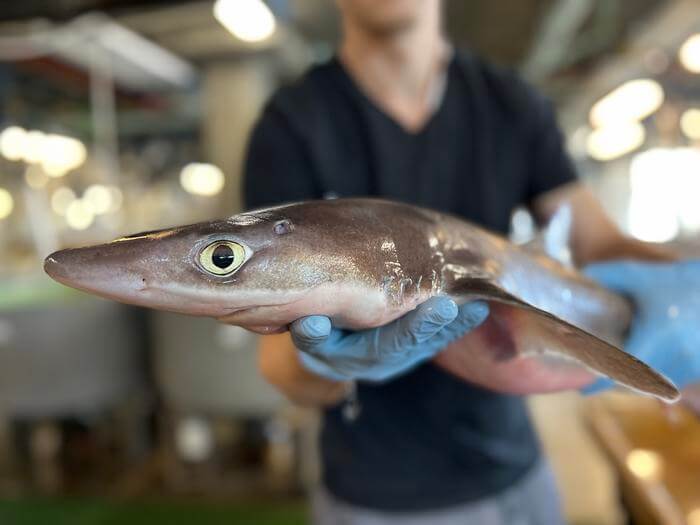Reports of sharks exhibiting remarkable wound-healing capabilities in the wild have intrigued scientists, shedding light on potential biomedical applications of compounds found in shark skin. While controlled laboratory studies are pending, researchers at the Karolinska Institute in Sweden conducted in-depth research on the skin biochemistry of cartilaginous fish, including the spiny dogfish, at the Marine Biological Laboratory (MBL) in Woods Hole.
Led by Jakob Wikström, associate professor of dermatology, and senior researcher Etty Bachar-Wikström, the study focused on characterizing the molecular composition of shark skin, an area largely unexplored until now. Their findings, published in the International Journal of Molecular Sciences, unveiled a thin mucus layer on shark skin that diverges chemically from that of bony fish, displaying similarities to certain mammalian mucus, including humans.
Wikström emphasized the uniqueness of shark biology, highlighting potential applications in wound care treatments. Drawing parallels with codfish-derived wound products, he envisioned similar innovations using shark-derived components. Bachar-Wikström stressed the importance of understanding these remarkable creatures for both human relevance and deeper molecular insights into their survival mechanisms.
The researchers, delving into a series of upcoming papers, aim to further dissect the distinctive biochemical properties of shark species, including chain catsharks and the little skate, alongside spiny dogfish. Their investigations will encompass detailed studies at the single-cell level and a closer examination of shark skin’s healing capabilities.
Wikström emphasized the potential for evolutionary distant species like sharks to yield crucial insights applicable to humans. While zebrafish wound healing has been extensively studied, sharks remain a relatively uncharted territory, promising exciting discoveries in explorative research.
The researchers credited the Marine Biological Laboratory for providing essential resources, including a diverse specimen collection and experienced specialists, enabling this groundbreaking work. Wikström emphasized the rarity of such expertise worldwide, highlighting the MBL’s pivotal role in advancing their research.

